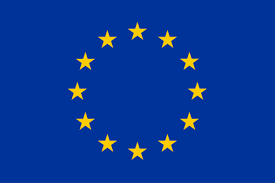
BIOFACH 2019
Visit IFOAM EU at our BioFach 2019 stand: 13 – 16 February, Hall 1 (1-451)
Express your opinion and learn more about organic food and farming in the European Union! More details in the timetable below.
For more information visit www.biofach.de

Programme
As part of LIVESEED, IFOAM EU, the Louise Bolk Institute (Netherlands), and FIBL Switzerland are co-organising a workshop to discuss what concrete engagements stakeholder groups across the value chain can take to facilitate organic plant breeding. Speakers will present cases on organic breeding in a system-based approach, and integrated organic plant breeding approaches as tools to ensure food security, food safety and climate ready agriculture. Group discussions will explore why different value chain actors could support organic plant breeding, and what are the advantages of organic plant breeding for the value chain and for the consumers and society.
More: https://www.liveseed.eu/2019/liveseed-events-at-biofach-2019/
To remain GMO-free, organic farmers and food and feed processors need to implement measures to protect their production from contamination to avoid economic and credibility loss. Learn more about practical solutions at different steps of the food production chain, and IFOAM EU’s new publication: Practical guidelines: How to avoid GMOs contamination, in partnership with BÖLW, FNAB, and the ORC.
This session will discuss how the future CAP can reward the full-scale transition towards sustainable farming systems that respect nature, the environment and our health. The panellists will reflect on the ongoing CAP revision, their visions for the policy’s future, as well as on the risks and benefits of both the proposed new green architecture and the results-based system. Sector representatives discuss with high ranking political and European Commission representatives.
Sales of organic products in specialized retailers have generally become stable in the EU as the organic sector becomes more industrialized. We will delve into defining what an organic retailer is and what opportunities and challenges these actors face in today’s rapidly evolving market. We will also present the newly formed IFOAM EU interest group of organic retailers (IGOR).
As Internet of Food and Farm 2020 reaches the mid-point of the implementation, the case studies have the first results to share. The speakers will throw light on what works and discuss the benefits as well as the limitations of the Internet of Things technologies for organic food and farming.
Organic farming needs more organic seeds. The new organic regulation opens new possibilities, but all will depend on its implementation, which will include a temporary experiment on organic varieties and the possibility to market Organic Heterogeneous Material. This session will notably present a toolbox within the research project LIVESEED to provide guidelines for Organic Heterogenous Material.
An exchange with experts and stakeholders from all the world starting from the New EU Organic Regulation and the latest developments related to the US standards. The session will also explore the possibility of a multilateral agreement which would facilitate the trade of organic products among all the countries.
The workshop aims at identifying common paths of collaboration on breeding and cultivar testing methodologies including material exchange, investigating common strategy on organic breeding innovation promotion to the market and end users and exploring new challenging impact of organic legislation on apple breeding and reproductive material marketing.
TP Organics’ Science Day will shape the new Strategic Research & Innovation Agenda for organic and agroecology in Europe. Participants will have an opportunity to discuss priority topics to address current research needs. Policy makers taking part in the event will provide feedback and highlight the opportunities for organic in the EU’s new Research and Innovation Programme Horizon Europe.
Natural inputs play an important role in the work of organic farmers and processors. We discuss the availability of natural substances in different countries. What does naturalness mean and how can we make sure that we have suitable natural inputs for plant protection, fertilization and food/feed additives in the future? The results of this discussion will feed into the H2020 project RELACS.
As a sector, can we provide a (unified?) response to food scandals without reverting to a “my organic is better than your organic” narrative that undermines efforts to educate global citizens on the complexities of organic? When they happen, food scandals tend to rattle our sector and provide fodder for skeptics and opponents of organic. The immediacy and large potential reach of digital communication makes the spread of wrong, overly simplistic or incomplete information easy. Which strategies do organizations adopt to balance out negative press? How do we prevent one food scandal from being made to seem representative for the whole organic sector, potentially triggering a loss of consumer trust and fueling an anti-organic rhetoric? Speakers share their experiences of and approaches to negative communication, counteracting generalization and an oversimplification of a complicated topic.


